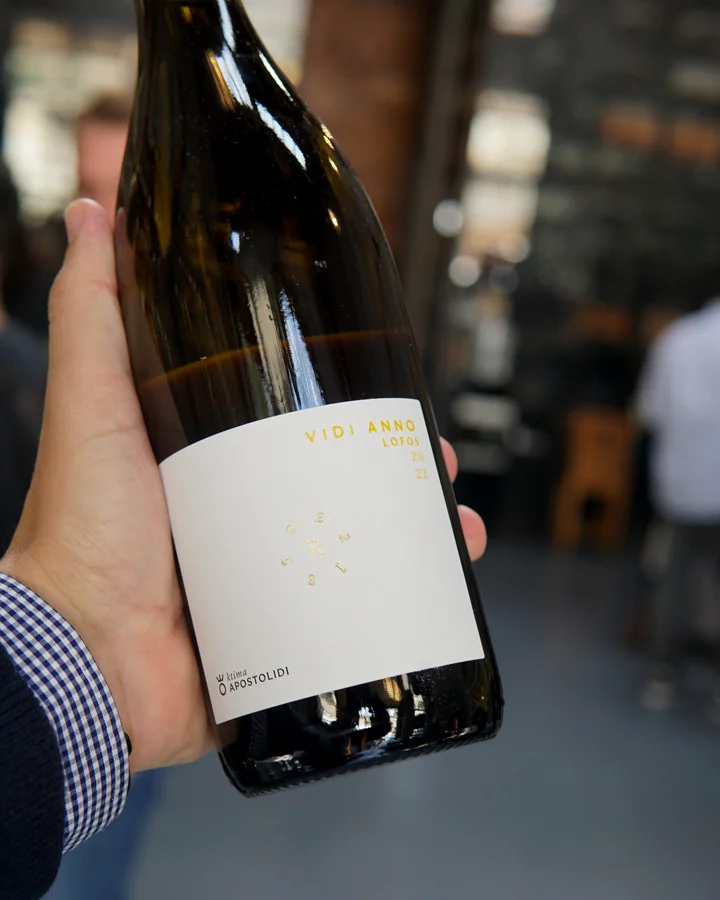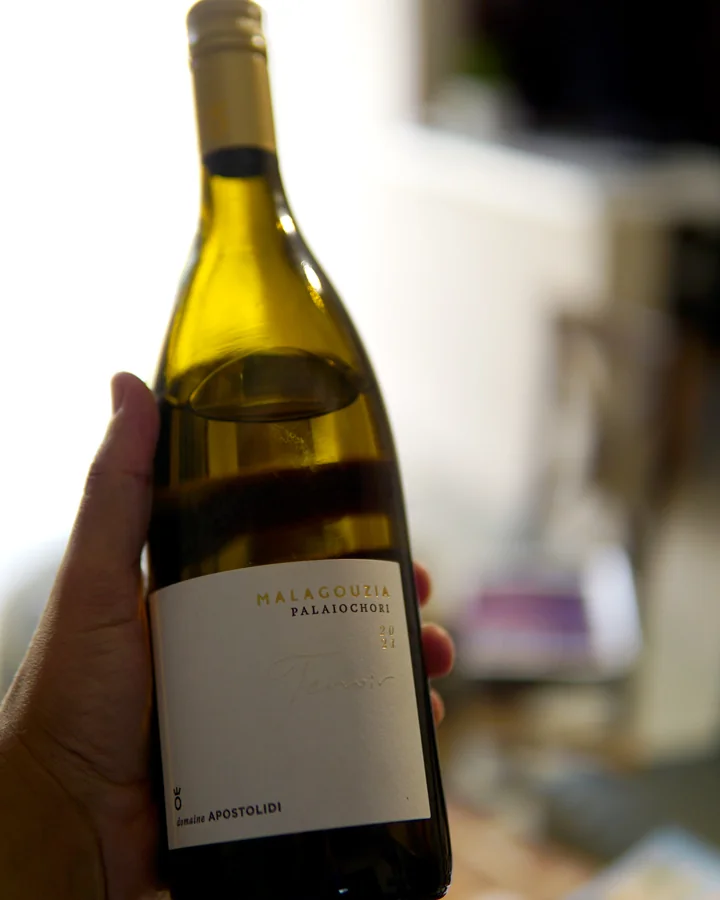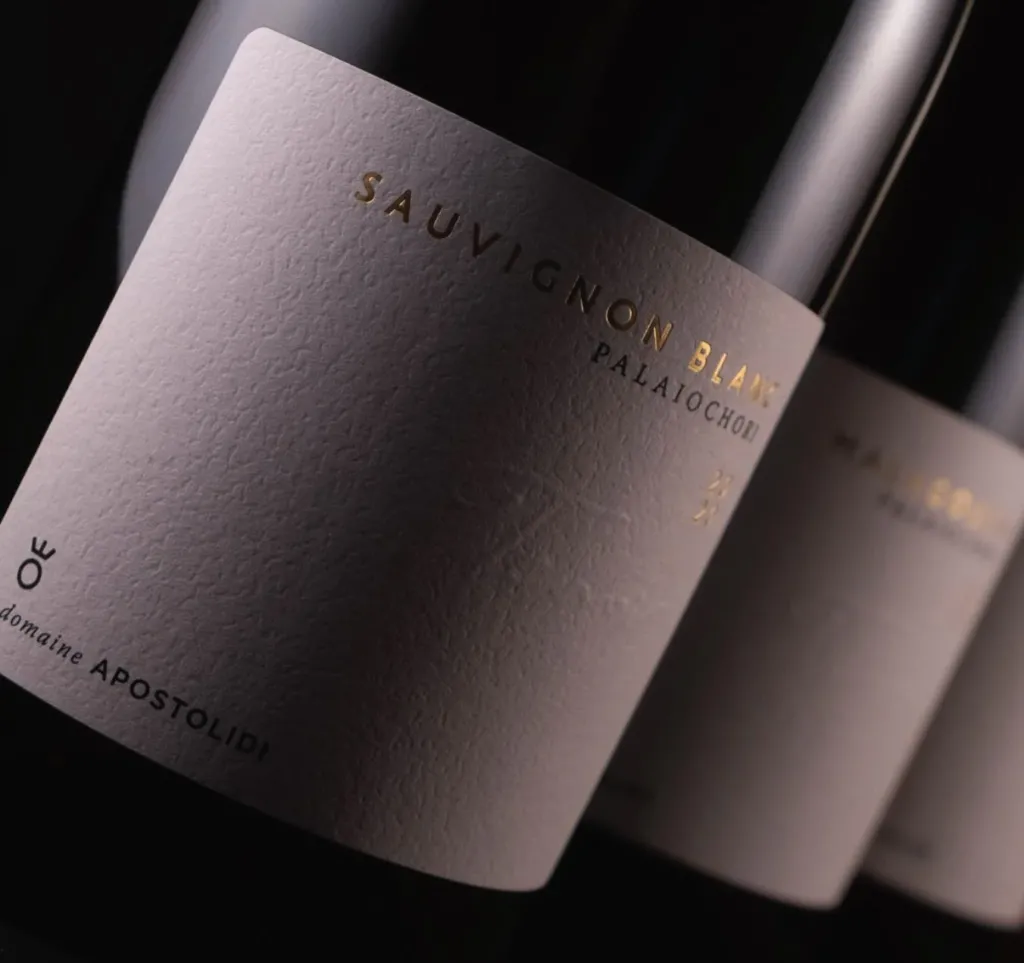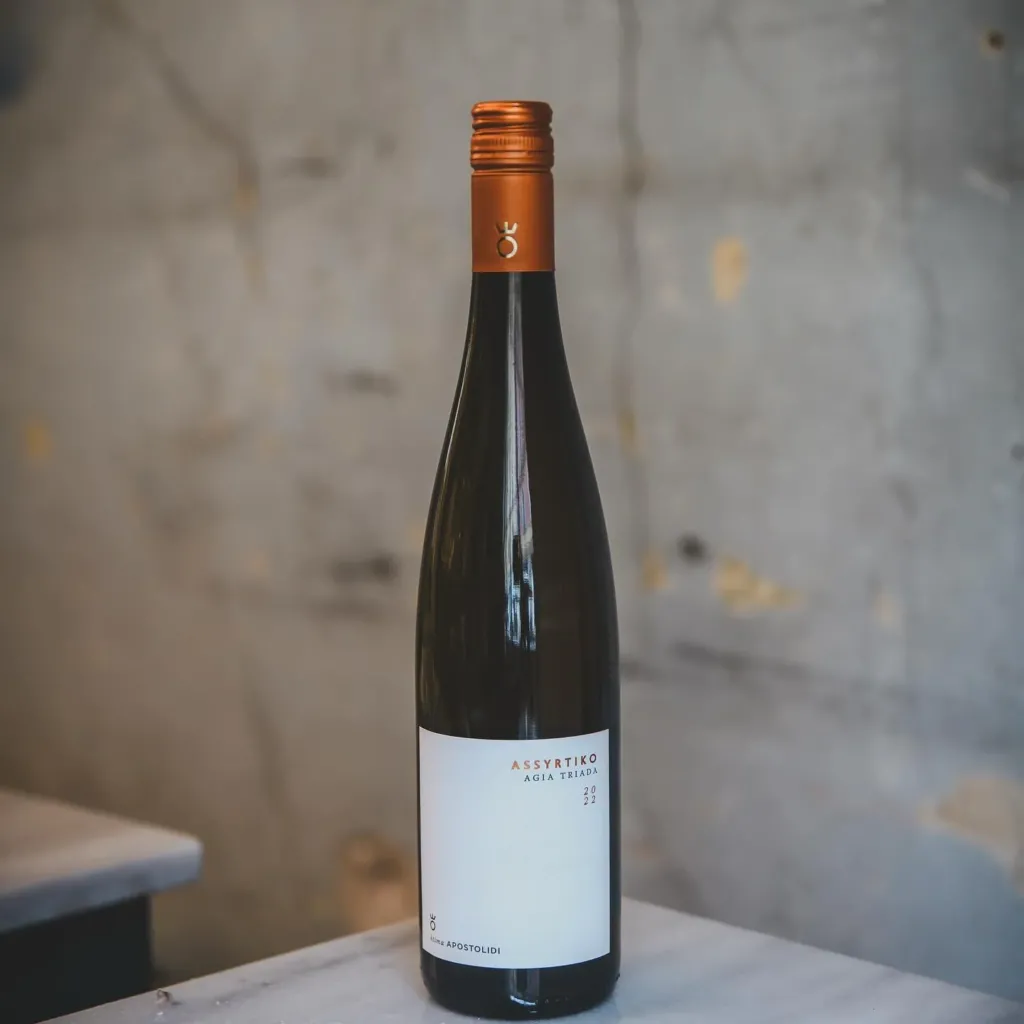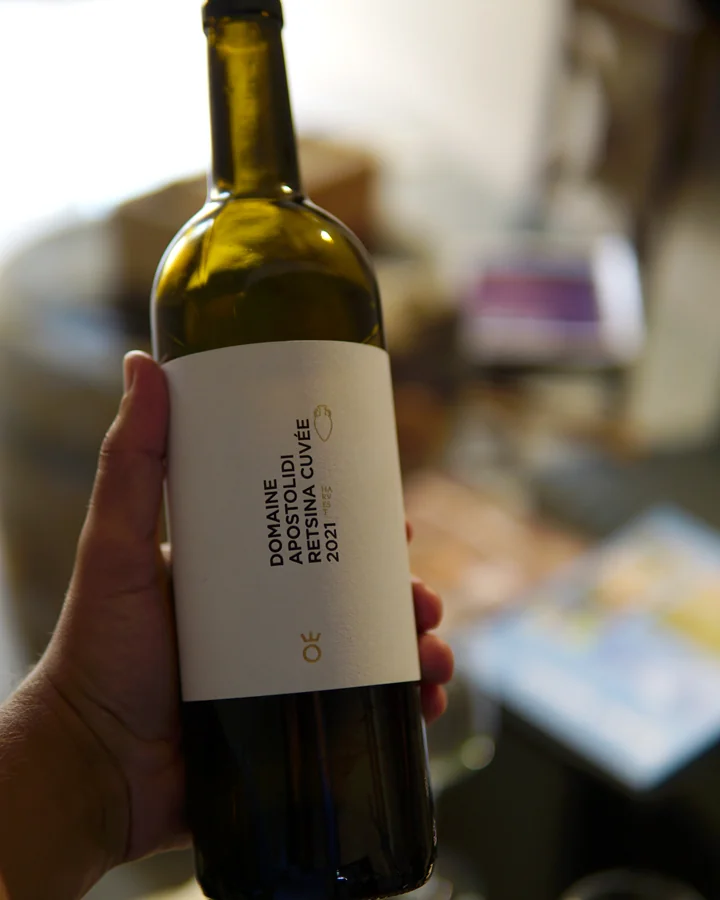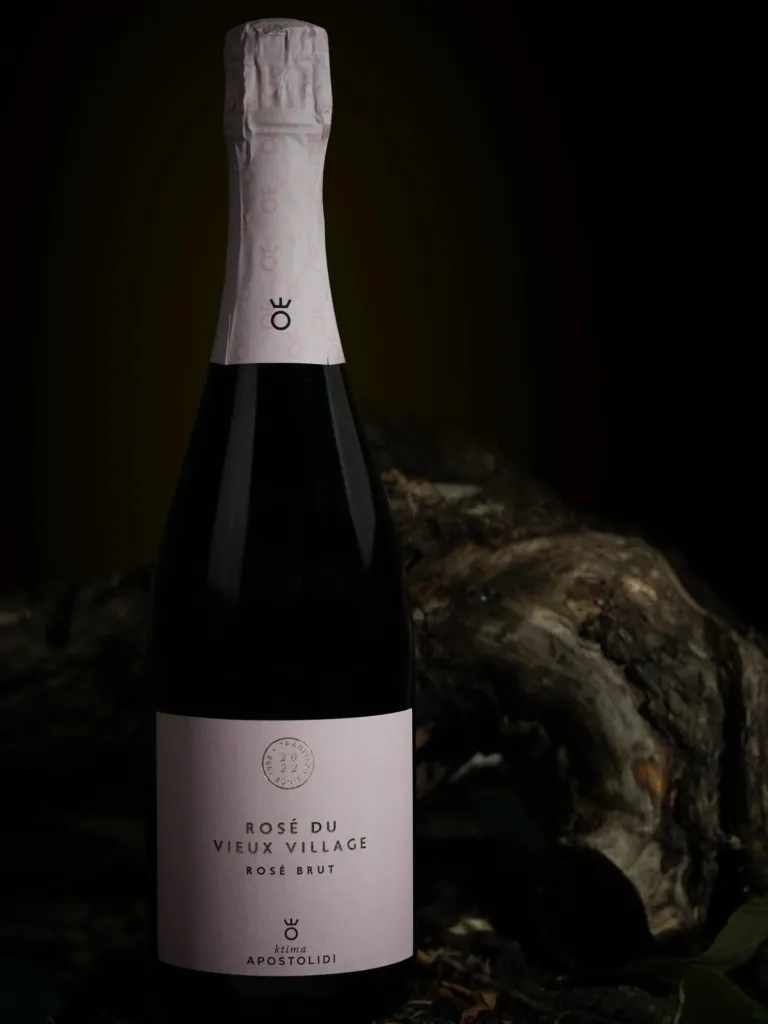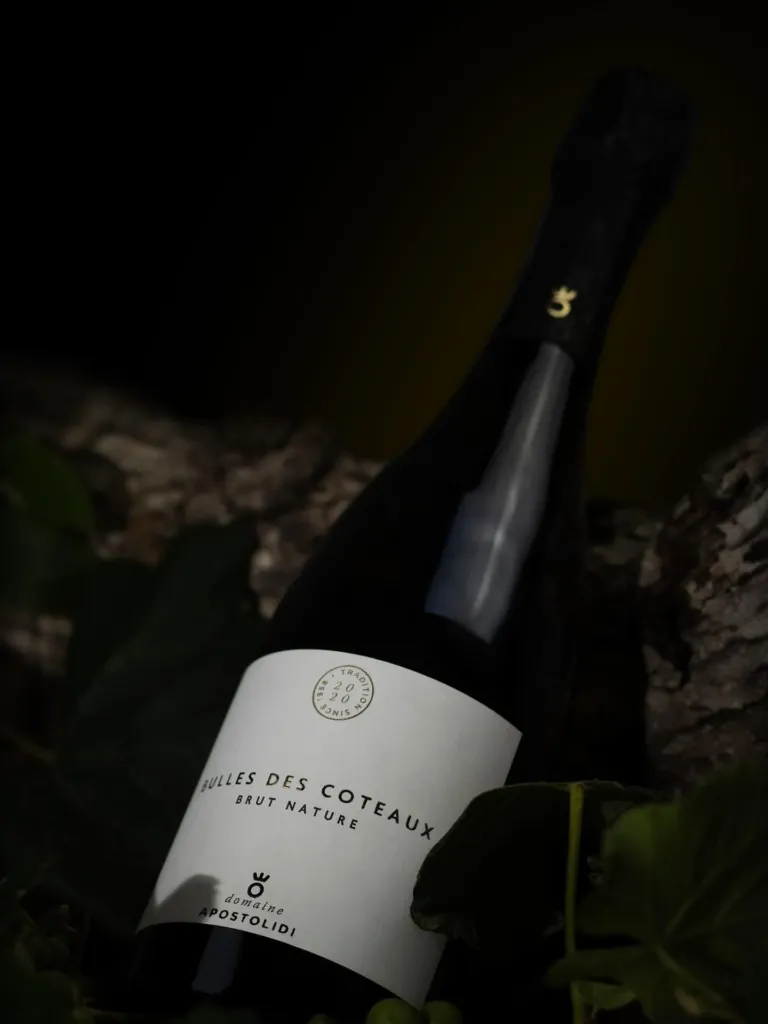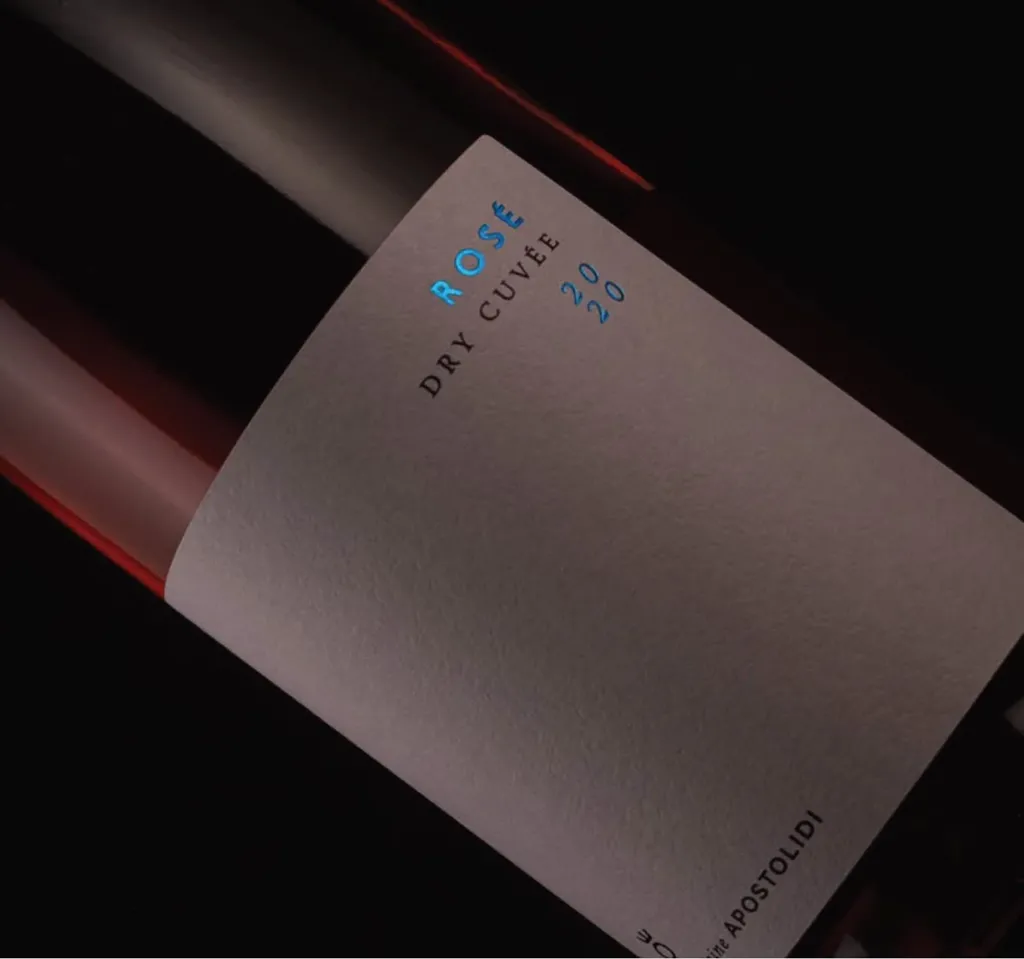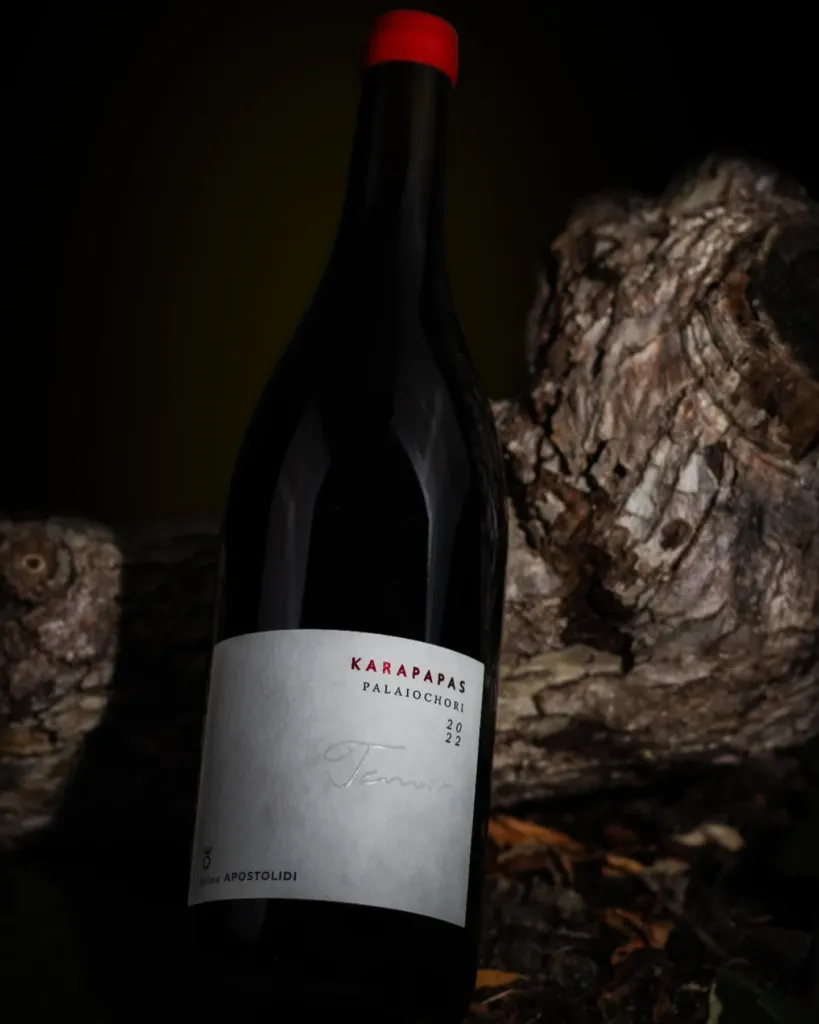On the western banks of the Nestos River, where Thrace brushes against Macedonia, Apostolidi has been rewriting the Kavala wine story since 1958. What began as Efthymios Apostolidis’s stubborn experiment has grown into a third-generation family estate that refuses to play by the old “bulk wine” rules of the region. Today, siblings Vasiliki and Efthymis run the show: she steers the business, he steers the fermenters. Both came back from Germany armed with enology degrees and fresh ideas. Their answer to a tired local tradition? Certified biodynamics, Demeter seal and all.
The vineyards — 13 hectares scattered across Agia Triada, Palaiochori, Lofos and Plagia — sit at 150 meters with clay-loam soils streaked with limestone. Warm Aegean days, cool mountain nights, and slopes that make tractors curse but grapes sing. The family treats the vineyard as a living organism, compost and lunar calendars included, which is why their bottles taste more alive than most.
And the wines? They don’t hide behind clichés. An Assyrtiko that crackles with citrus and wet stone. Malagouzia with white peaches and jasmine that actually feels clean, not perfumed. A Vidiano named Vidi Anno that got the international critics buzzing. Even a Retsina that’s not a joke — amphora, zero sulfites, pine resin handled like a spice rather than a punch in the face. Reds follow the same philosophy: Agiorgitiko and Syrah under the “Sol Rouge” label, polished but not overdone; and the comeback kid, Karapapas — a nearly extinct grape Apostolidi revived, bottled, and turned into a conversation-starter for sommeliers everywhere. Add to that a sparkling Assyrtiko that some Greek critics dared to compare to zero-dosage Champagne, and you get the picture.
Ktima Apostolidi doesn’t try to please everyone. They don’t need to. Their wines are made for those who want authenticity with precision, heritage with edge. For lists that want a story worth telling and glasses that don’t taste like anyone else’s.


